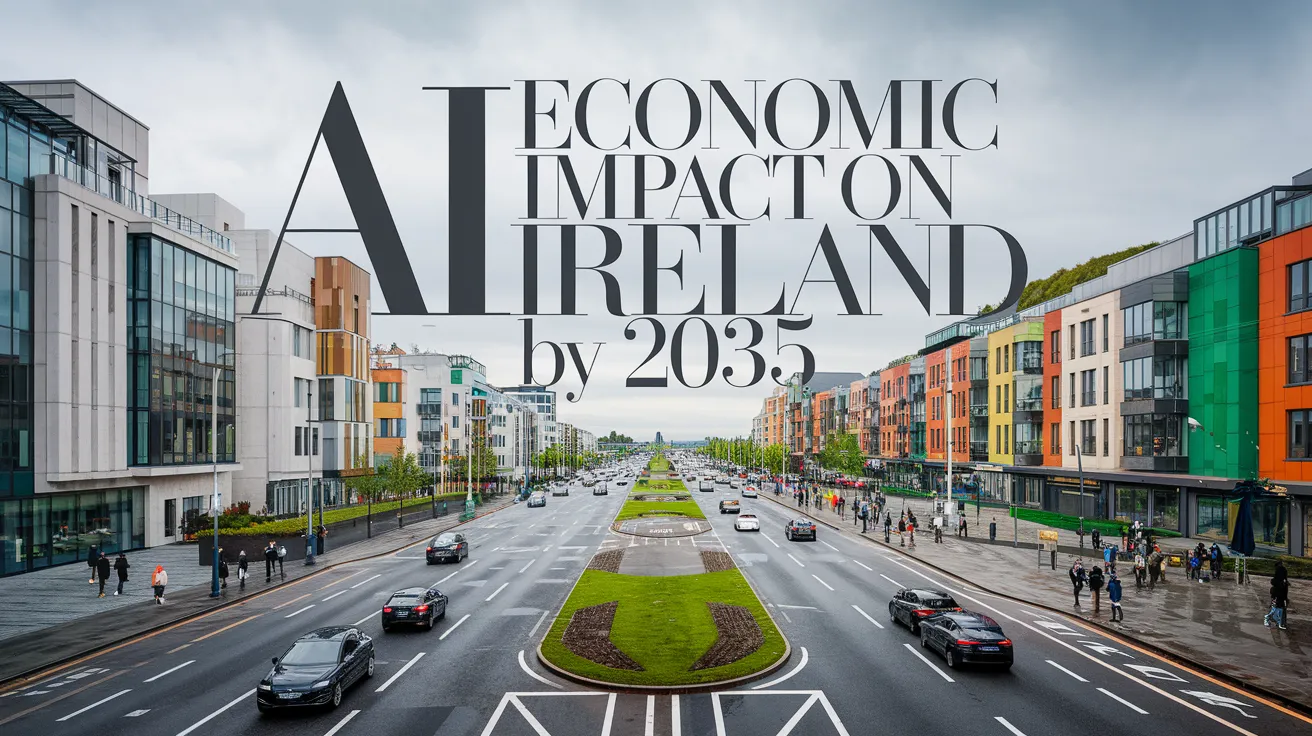AI Economic Impact on Ireland by 2035

A new report by Microsoft and Trinity College Dublin reveals a promising projection for Ireland’s economy concerning artificial intelligence (AI). The study forecasts that AI adoption could contribute a staggering €250 billion to Ireland’s economy by 2035, significantly enhancing the nation’s GDP.
The report, titled “The AI Economy in Ireland 2025”, indicates that AI’s implementation is anticipated to increase Ireland’s Gross National Income (GNI) by at least €130 billion by the same year. This notable potential for economic growth places Ireland as a leader in AI adoption within the EU, with the adoption rate having surged to 91%—nearly doubling from 49% in 2024.
However, the report also uncovers the existence of a “shadow AI culture” within organizations, where employees are independently utilizing AI tools without any oversight from their employers. Alarmingly, 80% of organizations indicate that their employees are using free AI applications that lack enterprise security controls. Moreover, 61% of managers recognize AI usage in workplaces where it is officially restricted. This points to a need for organizations to establish better governance frameworks around AI use.
Interestingly, the report highlights a disparity in AI adoption rates between small and medium-sized enterprises (SMEs) and multinational organizations. SMEs lag behind, with AI adoption rates 30% lower than multinationals; only 10% of SMEs have an AI strategy in place compared to 50% of larger firms. Such a gap could hinder the overall economic benefits that widespread AI implementation promises.
The findings also reveal significant regulatory barriers affecting AI adoption. In Northern Ireland, 80% of organizations cite these challenges, contrasting with only 50% of organizations in the Republic of Ireland. Additionally, public sector organizations appear to be slow in leveraging AI, with a mere 15% employing it in critical decision-making roles.
Despite these obstacles, the sentiment towards government support for AI remains positive, with 63% of organizations believing that the government is in favor of AI adoption. Catherine Doyle, General Manager of Microsoft Ireland, emphasized that with collaborative efforts from governmental agencies, academia, and industries, Ireland holds the potential to thrive in the global AI landscape, fostering sustainable economic growth across various sectors.
As highlighted by Dr. Ashish Kumar Jha, Associate Professor of Business Analytics at Trinity Business School and co-author of the report, Ireland is currently at a crucial juncture in its AI adoption journey. While the significant increase in adoption rates over the past year shows promise, the real challenge lies in moving beyond experimentation toward strategic, large-scale implementation.
This research stems from extensive work conducted by the Trinity Centre for Digital Business and Analytics (CDBA) in collaboration with market research firm 3GEM, taking into account insights from 300 senior leaders across numerous industries.